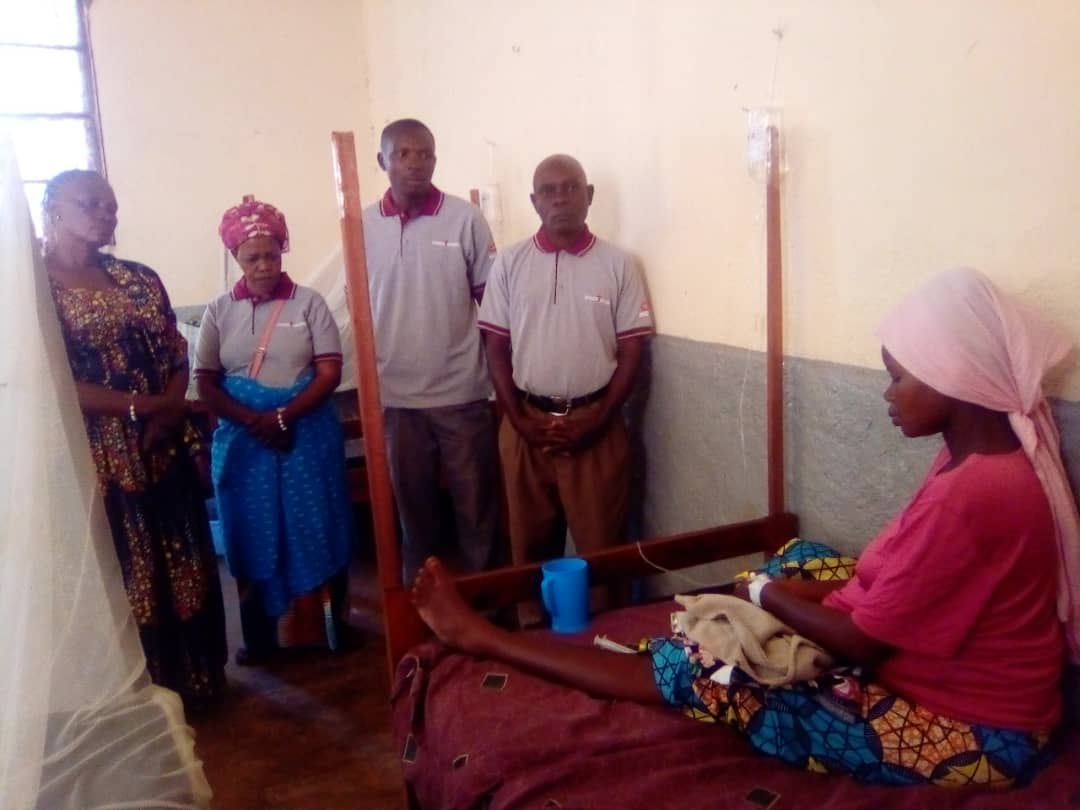
Visiting the sick – Fifth Corporal Work of Mercy
The Works of Mercy through the eyes of a biblical scholar
We are very excited about the idea that in a few days we will finally be able to meet in person. Some of the friends who will come to Lucca to discuss together about Works of Mercy, come from countries as far away as Benin, Burkina Faso, Kenya, Burundi, India. Together we will try to build useful tools for the knowledge and dissemination of the Works of Mercy.
In this regard, with the help of our friend and biblical scholar Carlo Miglietta, we will try to prepare ourselves as best we can through the daily study of a specific work.
The fifth Work of Corporal Mercy is “visiting the sick”

The biblical scholar points out to us that he who performs this work is similar to:
- God: “I will go in search of the lost sheep…; I will bind up the wounded one and heal the sick one, I will care for the fat one and the strong one” (Ez 34:16); “I am the Lord, the one who heals you! ” (Ex 15:26); “He heals all your diseases” (Ps 102:3); “Raphael (ed: etymologically: God heals) was sent to heal the two: to remove the white spots from Tobi’s eyes, so that his eyes might see the light of God; to give Sarah in marriage to Tobiah, Tobi’s son, and to deliver her from the evil demon Asmodeus” (Tb 3:17).
- Jesus: “They brought to him all the sick, afflicted with various diseases and pains, possessed with demons, epileptics and paralytics; and he healed them” (Mt 4:24); “When evening came, they brought to him many possessed people, and he cast out the spirits by his word and healed all the sick” (Mt 8:16; 14:14.35; 15:30).
- Peter “They brought the sick to the squares, placing them on cots and beds, so that when Peter passed by, even his shadow would cover some of them. Crowds from the towns near Jerusalem also flocked, bringing the sick and those tormented by unclean spirits, and all were healed” (Acts 5:15-16).
- The good Samaritan, who took care of the wounded man and, not being able to care for him directly, then entrusted him to the care of the innkeeper, paying out of his own pocket (Lk 10:30-37).
- Paul: “Publius’ father had to go to bed stricken with fever and dysentery; Paul went to visit him and after praying laid his hands on him and healed him” (Acts 28:8).
The biblical scholar also reminds us that those who welcome strangers hear the Word of God
Below some excerpts:
- “Do not delay in visiting a sick person, for for this you will be loved” (Sir 7:35).
- “Lay hands on the sick and they will be healed” (Mk 16:18).
- “Heal the sick who are there, and say to them, ‘The Kingdom of God has come near to you'” (Lk 10:9).
- “Heal the sick, raise the dead, heal the lepers, cast out demons” (Mt 10:8).
- “Then come the miracles, then the gifts of healing, the gifts of assistance” (1 Cor 12:28).
The biblical scholar leaves us at the conclusion of this work with a provocation, a question: do we know how to be “fishers of men” (Mk 1:7), identifying those who care for the sick and proclaiming the beatitude of mercy that reads “Blessed are the merciful” (Mt 5:7)?
The feeling of compassion

This Work of Mercy inevitably puts us in relation with those who are experiencing suffering or the “dimension in which the life of the sick person shines,” Pope Francis reminds us. It can happen that those who live the moment of trial and pain feel lost, pervaded by a certain sense of loneliness. This is why our time can become a resource and at the same time an expression of generosity, closeness and compassion.
Compassion, a Latin word meaning ‘to suffer with’, is that feeling whereby we perceive someone else’s suffering and wish to alleviate it, a coming into relationship through a deep and intimate attunement with the other.
It is reciprocity in the gift because if on the one hand we offer our attentive and patient listening, on the other hand the sick person helps us to enter into contact with sickness and suffering, dimensions proper to every man, giving us important lessons in life and helping us to grow in our faith and humanity.
Learn more about the HIC SUM project
Bibliography
![]() Carlo Miglietta – Le Opere di Misericordia
Carlo Miglietta – Le Opere di Misericordia
 Carlo Miglietta – Works of Mercy
Carlo Miglietta – Works of Mercy
 Carlo Miglietta – Oeuvres de miséricorde
Carlo Miglietta – Oeuvres de miséricorde
Read Also
Accommodation for pilgrims – Fourth Corporal Work of Mercy
Dressing the naked – Third Corporal Work of Mercy
Giving drink to the thirsty – Second Corporal Work of Mercy
Feeding the hungry – First Corporal Work of Mercy
The Works of Mercy from Brazil to Italy
